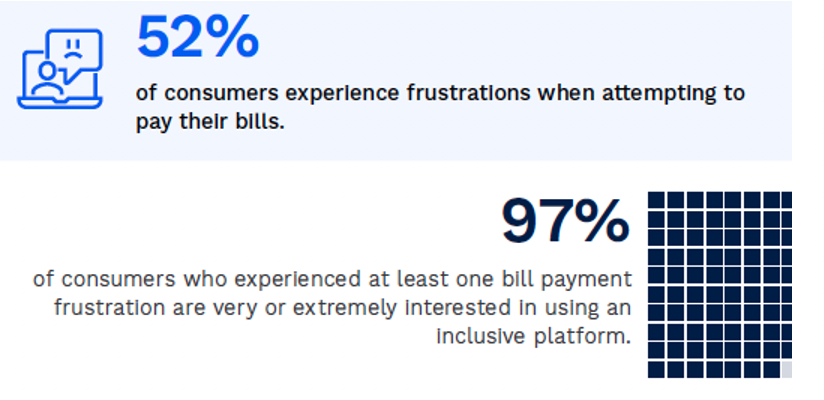Consumers Want Banks to Make Paying Bills Easier

The bill payment process can often be a source of frustration for consumers, with a significant share experiencing difficulties when attempting to pay their bills.
These frustrations are not only causing dissatisfaction but are also motivating them to seek out alternative providers who can offer a more seamless and inclusive billing experience.
In “Holistic Bill Pay Wins Over Users — but Holdouts Remain,” PYMNTS Intelligence explored consumer and executive experiences and perceptions of the bill payment process and payment portals.
Findings detailed in the joint PYMNTS-Paymentus study showed that 52% of consumers experienced frustrations when trying to pay their bills, ranging from complicated payment processes to technical glitches and delays.

The study also revealed a correlation between bill pay frustrations and consumer interest in switching to a new provider. Among consumers who did not experience any bill pay frustrations, only 27% expressed a high likelihood of switching to an inclusive billing platform. However, this percentage increased as the number of billing frictions escalated.
For instance, 43% of consumers who encountered one or two bill pay frictions expressed a similar likelihood of switching providers. This indicates that even a few frustrations can be enough to drive consumers to seek alternatives.
The study also found that 63% of consumers who have experienced five or more frictions while paying their bills were very or extremely likely to switch providers, further highlighting the strong impact that repeated frustrations can have on consumer loyalty and willingness to explore other options.
Additionally, 97% of consumers who experienced at least one bill payment frustration expressed a high level of interest in using an inclusive platform that offers a more streamlined and user-friendly bill payment experience as well as features such as consolidated billing, simplified payment processes and real-time notifications.
With over half of consumers experiencing frustrations when paying their bills, it is fair to say there is a need for providers to address these issues and offer more seamless and inclusive solutions to retain their existing customers and attract new ones.